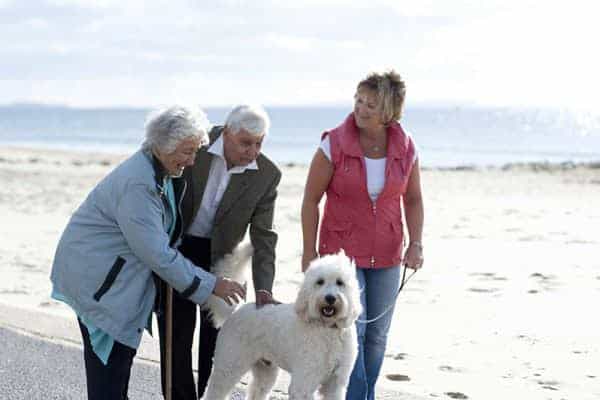Find out how care in your own home with homecare services could help you not only remain independent in later life, but how it can help you regain your independence and thrive in this next chapter of your life.
Getting older is often associated with losing independence. It can happen to some people sooner than they expect, and for many reasons including:
- a decline in health
- the loss of a partner
- the loss of family members
- a change in mental health status
What you should know is that losing independence is not inevitable. Even if you have found yourself with mobility issues or problems caring for yourself at home, that does not mean you cannot regain some measure of independence and improve your quality of life. All you may need is a little help from the experts providing live-in care or homecare services.
Homecare is a service provided by various senior care agencies for anybody who would prefer to stay at home whilst receiving the relevant support and assistnace they need from an in-home carer. Carers in the home can provide many services including:
- Help with medication: picking up prescriptions and organising medication so that it is taken at the right time each day
- Help with personal care such as getting in and out of bed, showering, going to the toilet, getting dressed
- Pet care – helping you to continue to look after a beloved pet
- Home cleaning and maintenance
- Gardening
- Cooking and advice on nutrition
- Companionship – the simple pleasure of having another person in the house to talk to, enjoy a cup of tea with or watch a favourite television programme
- Errand running
- Physiotherapy – encouragement and help to stay fit and mobile
- Help socialising and finding opportunities to socialise
There are also lots of other individual tasks and types of help that can be provided by carers in your own home. Homecare service providers will always approach each client position as being totally unique, understanding that each client requires and wants different services and help.
When Things Go Wrong
People over the age of 75 are particularly vulnerable to being lonely and more than a million older people a month go without speaking to anybody they know, even a neighbour. Statistics have also shown that some older people in the UK are malnourished, including those living in care homes. Both of these issues can happen at home where there is no help with care, or in a care home setting. Both of these issues are detrimental to the health of an elderly person and can cause independence to quickly diminish. A lack of exercise, a lack of adjustments to the home or a lack of correct support can also quickly lead to a change in circumstance at home. Falls are another menace for older people and something like a hip fracture can actually cause an older person to lose their independence entirely.
Homecare Can Help You Remain Independent In Later Life
Your carer is there to help you with nutrition, to help you with personal care and to help you maintain your independence. They will also do everything they can to help you regain independence and become more independent than you are now. Physiotherapy, mobility aid suggestions, companionship and help building your confidence will contribute to you living your best life in these later years.
Assistance from a carer will also help to prevent any further deterioration as the presence of the carer and their promotion of social events helps avoid loneliness issues. Research commissioned by the Live-in Care Hub shows that people with care at home have a third fewer falls than those in care homes and only a quarter of the hip fractures of those occurring in care homes.
If you are interested in homecare or live-in care, the first step you need to make is to reach out to those who can help. Speak to your GP, to your friends, your family, to your social worker – let them know you want to find out about care at home. You can have an independent later life, but the first step is getting the help to enable you to do that.






2 Comments. Leave new
Living at home means you can maintain your independence wherever possible by maintaining the lifestyle you love!
Absolutely Alice – it’s so important to maintain independece where possible and remaining at home can also avoid relocation stress syndrome where elderly people can suffer anxiety, confusion, hopelessness, and loneliness after moving to a care home or nursing home.